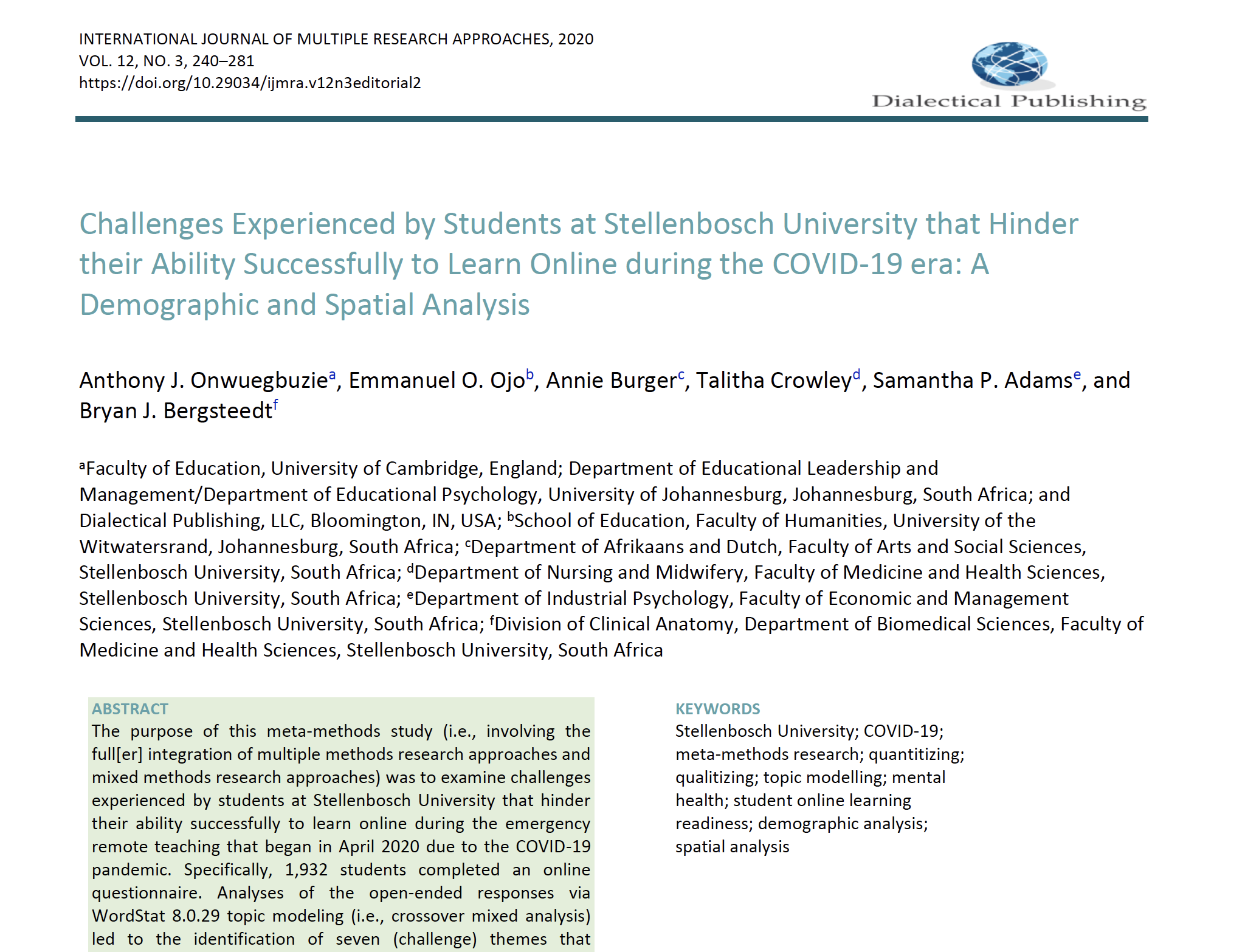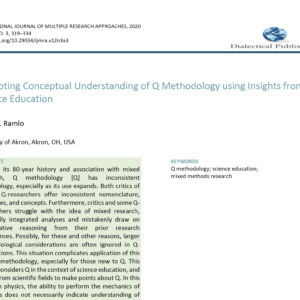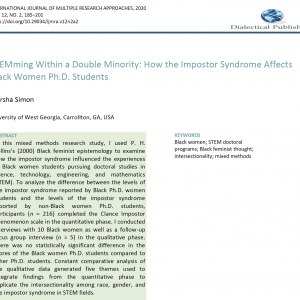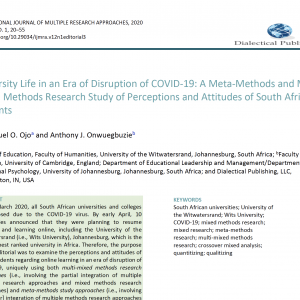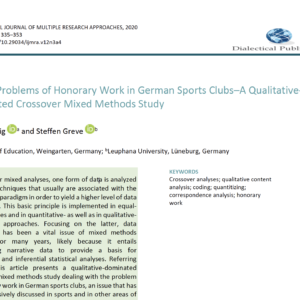12(3). 02. Challenges Experienced by Students at Stellenbosch University that Hinder their Ability Successfully to Learn Online during the COVID-19 era: A Demographic and Spatial Analysis
$0.00
Description
Author
Anthony J. Onwuegbuzie(a), Emmanuel O. Ojo(b), Annie Burger(c), Talitha Crowley(d), Samantha P. Adams(e), and Bryan J. Bergsteedt(f)
(a) Dialectical Publishing, LLC, Bloomington, IN, USA; Faculty of Education, University of Cambridge, England; Department of Educational Leadership and Management/Department of Educational Psychology, University of Johannesburg, Johannesburg, South Africa; and Dialectical Publishing, LLC, Bloomington, IN, USA; (b) School of Education, Faculty of Humanities, University of the Witwatersrand, Johannesburg, South Africa; (c) Department of Afrikaans and Dutch, Faculty of Arts and Social Sciences, Stellenbosch University, South Africa; (d) Department of Nursing and Midwifery, Faculty of Medicine and Health Sciences, Stellenbosch University, South Africa; (e) Department of Industrial Psychology, Faculty of Economic and Management Sciences, Stellenbosch University, South Africa; (f) Division of Clinical Anatomy, Department of Biomedical Sciences, Faculty of Medicine and Health Sciences, Stellenbosch University, South Africa
Abstract
The purpose of this meta-methods study (i.e., involving the full[er] integration of multiple methods research approaches and mixed methods research approaches) was to examine challenges experienced by students at Stellenbosch University that hinder their ability successfully to learn online during the emergency remote teaching that began in April 2020 due to the COVID-19 pandemic. Specifically, 1,932 students completed an online questionnaire. Analyses of the open-ended responses via WordStat 8.0.29 topic modeling (i.e., crossover mixed analysis) led to the identification of seven (challenge) themes that categorised the students’ challenges. In turn, via a principal component analysis of the themes (i.e., crossover mixed analysis), these seven themes were collapsed into four dimensions (i.e., meta-themes). A latent class analysis (i.e., qualitizing) yielded seven profiles of students. Disaggregating the themes by demographic and location variables led to the identification of subgroups who are most at risk for experiencing each challenge type. Implications of these and other findings are discussed.
